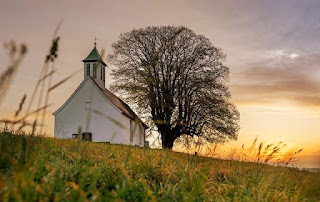There might not be much on which liberals and conservatives can agree these days, but I think both groups used to agree that the United States was, at least in some important sense, a nation of laws. This was something one would hear from both groups. The notion that everyone should be equal under the law was one of those key principles for which both groups would periodically express support even if they did so at different times and for different reasons. For a nation where separation of church and state is not only supposed to exist but is codified in law, the United States has done a remarkably poor job of allowing religious privilege (mostly Christian privilege) to persist to our detriment.
If there is one thing the COVID-19 pandemic has forced us to acknowledge, it is that granting religious exemptions in the face of a public health crisis can have disastrous consequences. It is not just that some religious believers turn to superstition and magic as a supposed solution to the problem. That is bad enough, but the real problem is that their behavior is being allowed to endanger the rest of us because some secular authorities are unwilling to enforce the law. For the few who have been prosecuted, countless others are getting away with continuing to hold religious services in direct violation of necessary orders that exist to protect all of us.
It is true that secular governments are not supposed to interfere with the practice of religion; however, this does not mean that religious believers are free to engage in practices that are harmful to the rest of us. At least, it is not supposed to mean that. I am not ready to claim that there should be no religious exemptions ever under any circumstances. Perhaps there are circumstances where religious exemptions would be defensible. Still, I think an argument could be made against religious exemptions in a general sense. If everyone is supposed to be equal under the law, how to we justify treating people differently under the law merely because of their religious beliefs?
Should a religious parent have the right not to vaccinate their child even though doing so places the child and the rest of us at risk? Should a religious parent have the right to deny life-saving medical attention to a dependent because they disagree with it on religious grounds? Should a religious business-owner have the right to refuse services to people who do not share their religious beliefs? Perhaps we would be willing to grant some religious exemptions, but cases in which doing so allows religious believers to harm others because they are religious believers cannot be one of them.
One of the most basic legal principles we have is the notion that an individual's freedom ends where it begins to impede the freedom of another. You are free to flail your arms about wildly, but this freedom ends where your fist connects with my nose. Most of us have little difficulty understanding that. Perhaps religious exemptions should be viewed similarly. Maybe the religious believer should be free to practice their religion right up to the point where it harms another. I think we are now looking at one of those situations where certain religious practices (e.g., large worship services) are jeopardizing the health of everyone else.
If the idea of religious privilege adversely affecting your health and well-being makes you mad enough that you'd like to do something about it, see What to do if public officials exempt churches from stay-at-home orders from the Freedom From Religion Foundation.
Update: For more on this important topic, see We Must End Religious Exemptions and Ensure Equal Treatment Under the Law.
